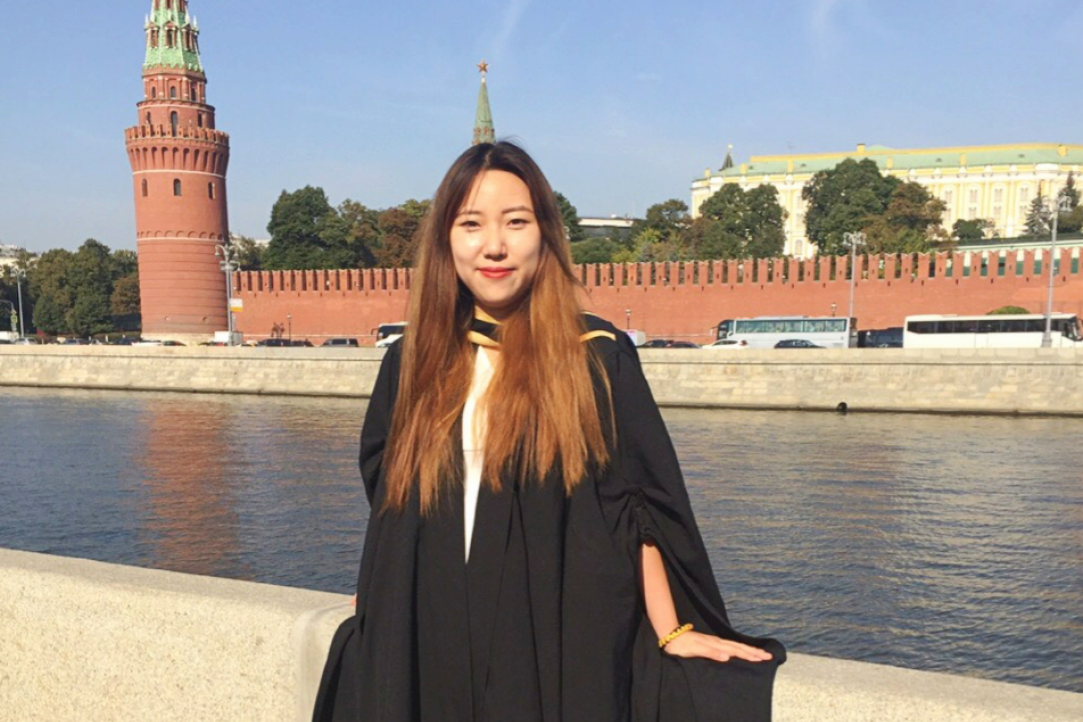Education Helps Us Learn New Things Quickly and Adapt to New Conditions
Hyen Jin Han is doing her Master's at HSE International College of Economics and Finance. In her interview, she talks about her passion for economics, studying at the ICEF, and career aspirations.

Hyen Jin Han is doing her Master's at HSE International College of Economics and Finance. In her interview, she talks about her passion for economics, studying at the ICEF, and career aspirations. Hyen Jin Han is originally from South Korea but went to high school in Moscow, Russia, so she learned Russian from an early age. However, she decided to study in an English-taught programme attracted by a double degree track with University of London.
When I first had heard about HSE in high school, I decided to study economics for my future career. I was not familiar with this subject, but I had a strong academic background in mathematics and I knew that HSE has good programmes in Economics.
During the consultation with HSE's international student admission director, I was encouraged to consider ICEF which would be a better fit for me as it teaches both economics and finance at superior level. Such suggestion together with state exam (Unified State Exam – standardized test in Russia) results, which were sufficient for the maximal scholarship, led me to the ICEF.
At the ICEF, I received not only the knowledge but also the reasoning and critical thinking skills. After 4 years of the bachelor's programme, I was confident about ICEF's teaching quality and standards, so I decided to continue my studies at ICEF's master’s programme.
Focus on Economics
When I was a first-year, one of the hardest subjects for me was Economics. After four years of studying, it became one of my favorites. Now I enjoy studying Microeconomics and Econometrics.
As a foreign student studying economics and finance, I think that my educational background is a double-edged sword because I have a great advantage in understanding two different economies, but to do so I need to dig deeper and wider than others to have the whole picture. Also I have to keep an eye on digitalization and to develop my skills accordingly.
Modern economies suffer from crises, for instance, pandemics or oil price volatility. As a result, there is a big income gap between the poor and the rich. It causes distortions that interfere with the global economy.
I read different scientific journals and websites such as Financial Times, Journal of Financial Economics and The Journal of Finance. On a daily basis, I also enjoy telegram and youtube channels related to economics and finance. For instance, I follow Chong Wang and Ilya Strebulaev. Ilya focuses on mysteries of capital structure, which fuels my interest in venture capital baсked firms. These researchers are studying the mysteries of economics and finance, connecting theory with practice.
ICEF Is a Comfortable Place to Study
At ICEF most of the professors and class teachers are available either offline after the classes and during office hours or online. Any issue can be brought for discussion and consultation. I received a lot of support in my last year of studies when I unexpectedly had to take a break in the first semester due to some health issues. The study office and many of the ICEF teachers helped me so that I could recover and catch up with the material and solve some organizational issues. I am particularly thankful to Svetlana Nedostup from the study office and ICEF teachers Olesya Kondrakhina and Daniil Esaulov.
The great advantage of Financial Economics programme is the opportunity to choose the future career direction. Obligatory courses are more research-oriented and focus on theoretical models with mathematical proofs. They provide a solid foundation for future academic career. There are also classes on Bloomberg terminal and research seminars, where students share their research topics and progress.
At the same time, the programme provides diverse practical courses, which students can choose according to their interests. For instance, this year I took ‘R Programming and Applications to Finance’ course to develop my practical skills. For my Master’s thesis next year, I am planning to forecast the Russian birth rates using the econometric models with online search engines.
I feel that choosing a practice-oriented programme along with gaining sound expertise in risk management make me almost invincible in the business world
Starting a Career
During my bachelor’s, I concentrated more on studying and had only short-term work experiences on HSE admission committee, as well as at various B2B business meetings and internships. At business meetings, I helped with the communication between Korean and Russian companies by introducing the product and discussing the possibility of future cooperation and partnerships. In summer, I had an internship at ACRA, the credit rating agency in Russia, where I first learned the SQL.
This year I am working as a consultant at Deloitte & Touche CIS. My position is in the Risk Advisory department that focuses on credit risks. I mainly work with data and on research projects. The recently published research studied the possible difference in financial effectiveness of Russian companies with women and men as CEOs. Multiple metrics were taken including the credit history of the company.
As for the future, I hope to build my career in risk management where I will be able to capitalize on my experience as an international student
ICEF holds a wide range of career events and meetings with the graduates. ICEF Career Service Centre also provides a lot of support and information. Education cannot give the full knowledge and skills necessary for work, but it can prepare us to quickly learn new things and adapt to new conditions. ICEF definitely develops such abilities in students.

